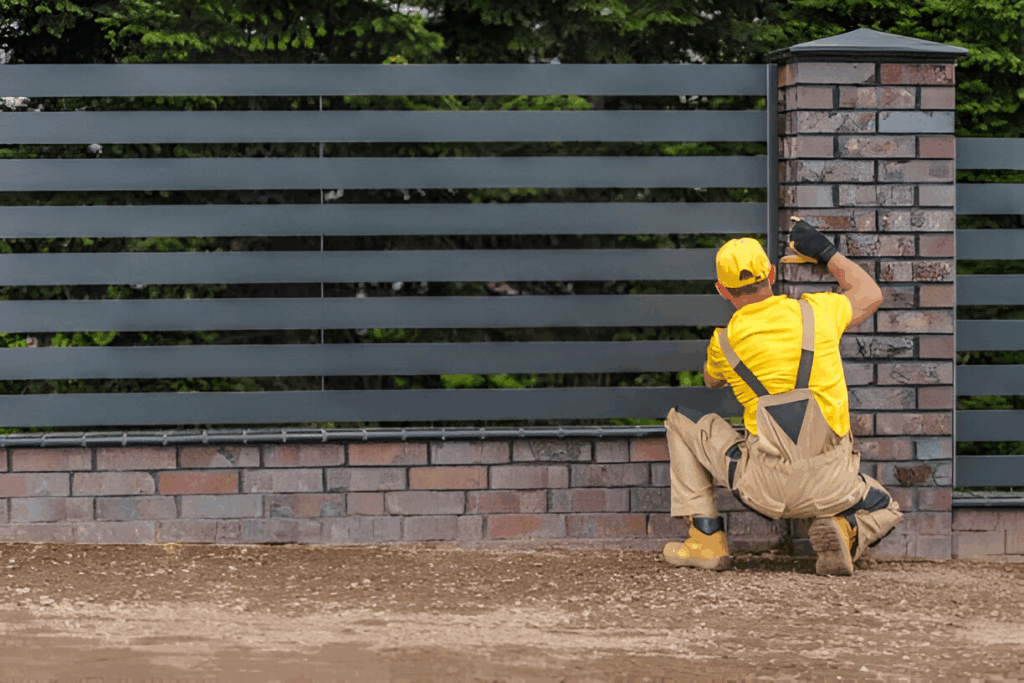When it comes to choosing the right fencing material for your North Carolina property, the decision often boils down to three popular options: vinyl, aluminum, and wood. Each offers distinct advantages, aesthetics, and levels of maintenance. Whether you’re securing a backyard, enclosing a pool, or boosting curb appeal, understanding the different applications, investment value, and maintenance levels is essential. At Gator Strong Services, we specialize in helping homeowners make informed decisions that align with their property needs and long-term goals.

Why Fence Material Matters in North Carolina
North Carolina’s climate, with its hot, humid summers and mild winters, can take a toll on outdoor structures. Your fence must withstand UV rays, moisture, storms, and pests. That’s why selecting the best material is not just about appearance—it’s about longevity, cost-effectiveness, and peace of mind.
Exploring Vinyl Fencing in NC
Vinyl fencing has become a popular choice for homeowners in North Carolina due to its sleek design and durability. Unlike wood, it doesn’t warp or rot under humid conditions. Vinyl requires minimal maintenance—a simple wash with a garden hose can often restore its appearance. It’s particularly useful for homeowners looking for privacy without the worry of recurring maintenance. Vinyl panels come in a range of styles and can be designed to mimic the texture of wood, offering the best of both worlds.
Aluminum Fencing in North Carolina
Aluminum fencing is a favorite for those wanting a sophisticated and secure boundary that also complies with pool safety codes. It is corrosion-resistant, especially when powder-coated, and can withstand the coastal and humid conditions of NC. Aluminum fences are commonly used in front yards, around gardens, and to enclose pools, adding elegance without compromising on visibility. While it doesn’t offer much in terms of privacy, it does provide security and style with very little upkeep.
Traditional Appeal of Wood Fencing
Wood remains a classic fencing option, appreciated for its natural appearance and flexibility in design. For NC homeowners aiming for a traditional look or those who prefer a DIY approach, wood is a go-to material. However, it does require commitment in terms of maintenance—regular sealing, staining, or painting is needed to protect it from moisture, pests, and the sun. The charm it brings to older homes or rural properties often makes the effort worthwhile.
Regional Climate and Fence Longevity
In NC, weather plays a significant role in the durability of your fence. Vinyl holds up well against moisture and UV exposure, making it a long-term solution in both inland and coastal areas. Aluminum doesn’t rust and is often used near the coast, where salt air can accelerate deterioration in other metals. Wood, though natural and beautiful, is the most vulnerable and typically has a shorter lifespan unless meticulously cared for.
Understanding Cost Over Time
Initial cost is only part of the equation when choosing a fence. Vinyl often has a higher upfront cost but requires almost no maintenance, which offsets that investment over the years. Aluminum falls in the mid-range for installation costs and has a high return in terms of longevity and elegance. Wood is typically the most affordable at installation, but the cost of maintenance and eventual replacement can add up significantly over a decade or two.
Fencing for Pool Safety in North Carolina
State regulations mandate that pool fences be at least 48 inches high and not allow a 4-inch sphere to pass through any openings. Aluminum fences meet these standards while offering a decorative and non-obtrusive look. Vinyl can also meet regulations, particularly when solid panels are used. Wood can be customized to comply, but may require more frequent inspection and maintenance to remain within code.
Balancing Aesthetics and HOA Rules
Many homeowners associations (HOAs) in North Carolina have specific guidelines regarding fence materials and colors. Aluminum is often approved because of its neat and classic appearance. Vinyl can be customized to meet those requirements with a range of colors and finishes. Wood may face resistance from HOAs due to its natural variation in appearance over time and greater maintenance needs.
Installation Timeline
Vinyl fencing is among the easiest to install due to pre-fabricated panels that snap together. Aluminum is also quick to set up and works well on sloped terrain. Wood installation takes more time and skill, often requiring custom cuts and alignment. If you’re on a tight schedule or want minimal disruption, vinyl or aluminum may be preferable.
Environmental Considerations
Environmentally-conscious homeowners should weigh the sustainability of each option. Aluminum is fully recyclable and has a long lifespan, making it one of the greener choices. Vinyl, though synthetic, is also recyclable and requires fewer chemical treatments. Wood, while natural, often requires chemical sealants to prolong its life, unless responsibly sourced from managed forests.
Final Thoughts: Making the Right Fence Choice in NC
Choosing the best fence material for your North Carolina property means aligning your budget, aesthetics, maintenance expectations, and specific use case. Vinyl is excellent for those who want a modern, private, low-maintenance fence. Aluminum stands out for elegance, durability, and compliance with pool codes. Wood appeals to traditionalists and budget-conscious homeowners who don’t mind regular upkeep. Contact us today at Gator Strong Services.
FAQs
